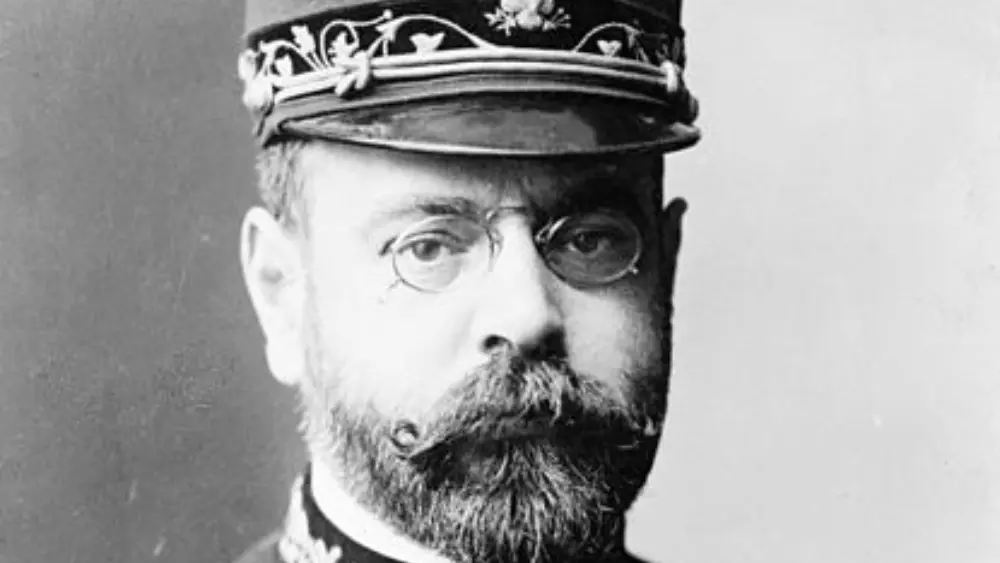John Philip Sousa, born on November 6, 1854, in Washington, D.C., was an American composer and conductor whose legacy remains closely intertwined with the tradition of military music. Known as the “March King,” Sousa’s contributions to music, particularly his iconic marches, have left an enduring mark on both the world of entertainment and the military. Furthermore, his influence extends to shaping the very fabric of American musical tradition. Additionally, Sousa’s innovative approach to composition not only captivated audiences during his time but continues to resonate with contemporary listeners.
Early Life and Musical Prodigy
John Philip Sousa’s early life was immersed in the rich tapestry of musical influences, setting the stage for his future as the “March King.” Born in 1854, Sousa grew up surrounded by the sounds of the military bands his father played in, offering him early and diverse exposure to music. Gifted with a natural aptitude for instruments, Sousa quickly mastered several, including the violin and the trombone, showcasing his versatility and love for musical expression.
Recognizing Sousa’s prodigious talent, his father enlisted him as an apprentice musician in the United States Marine Band at the age of 13. This early exposure to military music and the discipline of the Marine Band laid the groundwork for Sousa’s future career. His time in the band not only honed his musical skills but also instilled in him a deep appreciation for the patriotic and ceremonial aspects of music. Additionally, it fostered a sense of camaraderie among the band members. Furthermore, the experience heightened his awareness of the cultural significance of music, providing him with a broader perspective on its role in society. Sousa’s formative years as a musical prodigy within the military context ultimately paved the way for his iconic contributions to American music and his enduring legacy as a composer and conductor.
John Philip Sousa: Early Compositions and Conducting
After his apprenticeship with the United States Marine Band, John Philip Sousa embarked on a multifaceted career that showcased his talents not only as a musician but also as a composer and conductor. Sousa’s early compositions began to garner attention for their lively and patriotic character, setting the stage for his future successes. His compositions, often featuring spirited marches, quickly gained popularity, and Sousa’s reputation as a skilled and innovative composer grew.
In addition to his prowess as a composer, Sousa’s abilities as a conductor came to the forefront. He assumed the role of conductor for the Marine Band, displaying exceptional leadership and elevating the ensemble’s performances. Sousa’s conducting style was characterized by precision, energy, and a deep connection with the musicians. His success with the Marine Band paved the way for a prolific career as a conductor, leading various orchestras and bands throughout his life. Sousa’s influence on American music extended beyond his compositions, as his role as a conductor also left a lasting imprint on the nation’s musical landscape.
The Sousa Band: A Musical Phenomenon
The Sousa Band, established by John Philip Sousa in 1892, quickly rose to become a musical phenomenon of its time. Comprising skilled musicians and led by Sousa’s charismatic and dynamic conducting, the band achieved widespread acclaim for its exceptional performances. The Sousa Band’s repertoire was diverse, encompassing various genres, but it was Sousa’s own compositions, particularly his marches, that captivated audiences and defined the ensemble’s identity.
Touring extensively across the United States and around the world, the Sousa Band became a cultural ambassador, bringing American music to diverse audiences. Sousa’s compositions, such as “The Stars and Stripes Forever,” not only showcased his musical prowess but also contributed to the formation of a distinctly American musical identity. The Sousa Band’s success solidified Sousa’s reputation as a leading figure in American music, and the ensemble’s impact endures as a testament to Sousa’s enduring influence on the musical landscape of his time.
John Philip Sousa: Iconic Marches
John Philip Sousa’s iconic marches are a testament to his extraordinary talent as a composer and his deep connection to American musical heritage. “The Stars and Stripes Forever,” arguably his most influential composition, is renowned for its stirring melody and has been officially designated as the national march of the United States. Sousa’s ability to infuse his compositions with a sense of patriotism and pride made them resonate deeply with audiences, and many of his marches became synonymous with American identity.
“Semper Fidelis” and “The Washington Post” are additional examples of Sousa’s mastery in crafting marches that combine memorable tunes with a sense of energy and grandeur. Beyond their popularity in civilian settings, Sousa’s marches found a natural home in military contexts, where their spirited and uplifting qualities made them ideal for parades, ceremonies, and other events. Sousa’s contributions to military marches have made a lasting impact on American music, ensuring his legacy lives on through these timeless and cherished compositions.
Military Service: U.S. Marine Band and Beyond
John Philip Sousa’s military service played a pivotal role in shaping his musical career, particularly during his leadership of the U.S. Marine Band. Serving as its conductor from 1880 to 1892, Sousa not only showcased his exceptional skills in conducting but also demonstrated a keen understanding of the power of music in fostering patriotism and morale. His compositions during this period, such as “Semper Fidelis” and “The Washington Post,” reflected his commitment to creating music that resonated with the military spirit.
Beyond his time with the U.S. Marine Band, Sousa continued to maintain strong ties to the military. He led the Naval Reserve Band during World War I, contributing to the war effort through his musical expertise. Additionally, Sousa’s leadership brought a unique blend of morale-boosting entertainment and patriotic fervor to the military ranks. Furthermore, his dedication to service extended beyond the concert hall, as he used his musical talents to uplift the spirits of both soldiers and civilians alike. Sousa’s enduring legacy in military music is a testament to the profound impact he had on the genre, and his compositions continue to be embraced by military bands and patriotic events, perpetuating the connection between Sousa’s music and the spirit of the armed forces.
John Philip Sousa: Musical Ambassador
John Philip Sousa’s influence as a musical ambassador went far beyond his role with the U.S. Marine Band. As a prolific composer and conductor, Sousa took on the mantle of representing American music on a global stage. His tours with the Sousa Band, a civilian ensemble he formed in 1892, were instrumental in spreading the joyous and patriotic sounds of American music internationally.
Sousa’s travels took him to Europe, South America, and beyond, where he shared the vibrancy of American musical traditions. His compositions, with their distinct blend of lively melodies and military-inspired rhythms, resonated with audiences worldwide. Sousa’s role as a musical ambassador not only showcased the diversity and richness of American music but also fostered a sense of cultural exchange. Moreover, his international performances not only introduced global audiences to the distinct soundscapes of the United States but also facilitated a meaningful dialogue between different musical traditions. His legacy as a global ambassador of music endures, and his contributions continue to be celebrated for their enduring impact on the international appreciation of American musical artistry.

Legacy: The March King’s Enduring Influence
John Philip Sousa firmly established his legacy as the “March King” in American music history. His iconic marches, including “The Stars and Stripes Forever,” “Semper Fidelis,” and “The Washington Post,” continue to resonate as quintessential expressions of American patriotism and musical craftsmanship. Sousa’s mastery in composing marches elevated the genre to new heights, and his contributions became synonymous with national celebrations, military ceremonies, and parades.
Beyond the sheer popularity of his compositions, Sousa’s influence extended to the development of American music education. His advocacy for music in schools and his efforts to elevate the standards of musical performance left an enduring impact on the cultural landscape. The legacy of John Philip Sousa persists not only in the timeless tunes that bear his name but also in the broader cultural significance of his contributions to the musical identity of the United States. Moreover, his impact extends beyond music, influencing societal perceptions of patriotism and unity. As the “March King,” Sousa’s enduring influence continues to inspire musicians and evoke a deep sense of patriotism in the hearts of audiences across the nation.











